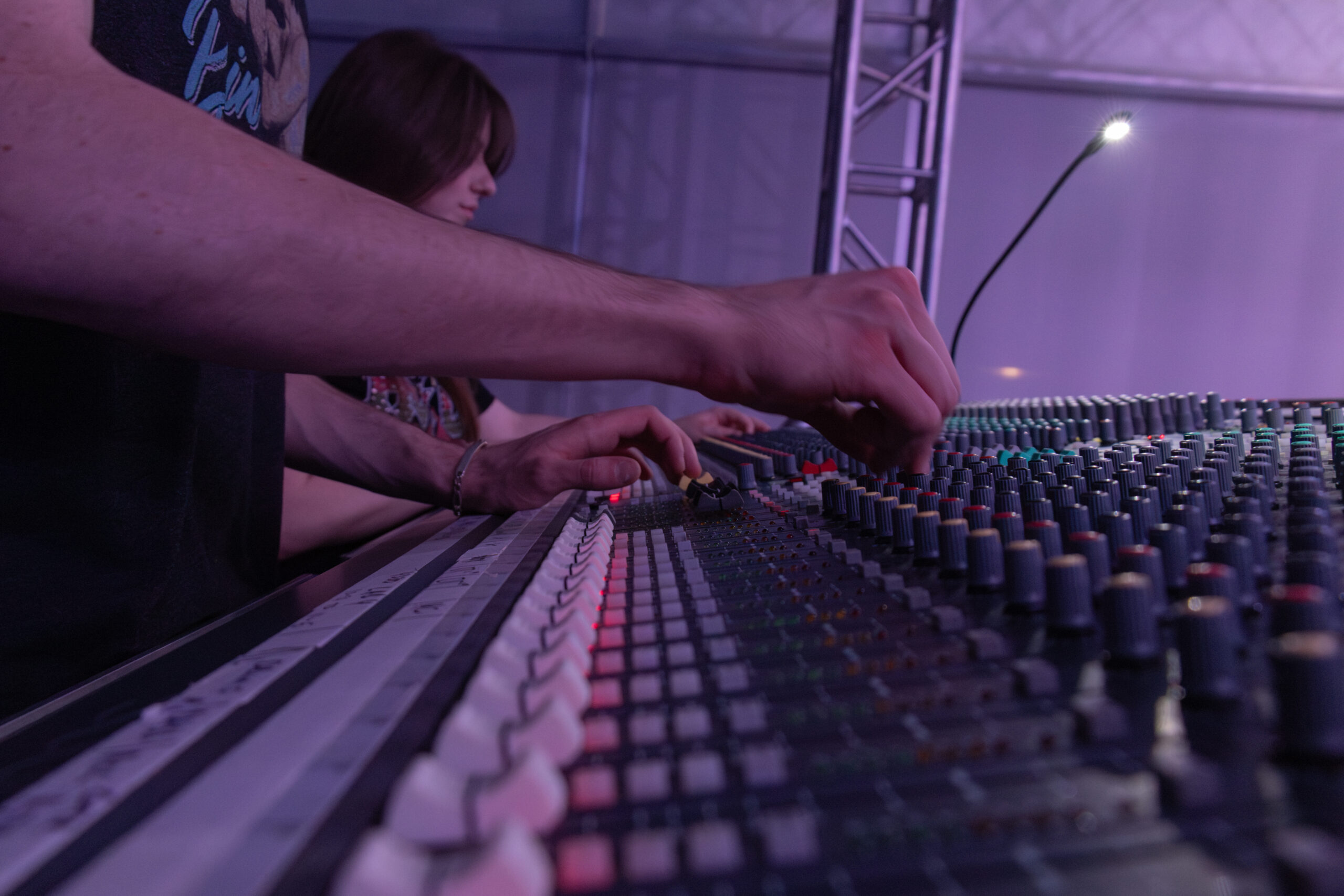Department of Recording Industry
Technology Requirements – Audio Productions
COMPUTER & SOFTWARE
Students in our program are required to have a computer and Avid Pro Tools software. Our college uses Apple Macintosh computers, with students being encouraged to do the same. An Apple MacBook Pro laptop is strongly encouraged.
Given that Avid’s Pro Tools audio software is the digital audio workstation (DAW) standard for audio production professionals, laptops and computers must meet Avid’s specifications. We use the most recent Pro Tools version based on the year of the Fall semester (e.g., Pro Tools 2024 for academic year 2024-2025). While versions are generally compatible, students are encouraged to use the same version as our facilities since features may vary from year-to-year and compatibility issues may arise when transferring work between different versions.
While we strongly encourage a MacBook Pro laptop, it is possible that students can use other computers (such as MacBook Air) as long as they meet “Pro Tools compatibility” standards. While knowledgeable, we are generally unable to support or assist with installation or compatibility issues. Specifications and a list of compatible computers can be found via Avid’s site. (Sub-links to lists of supported Mac and Windows models are available through the link.)
Computers do NOT need to meet the enhanced specifications for “Pro Tools HD” or “Pro Tools Ultimate” (e.g., don’t worry about the “PCIe slot” requirement). “Pro Tools Studio” is the compatibility version students will be using on their personal computers. Note that computers do not need to be the most recent model as the software is often still compatible and fully operational with older models.
Computer internal SSD hard drive storage size should be a minimum of 256 GB. 512 GB is encouraged, but if cost-prohibitive, students can easily purchase an external SSD hard drive for a fraction of the upgrade cost (ex. 1 TB of external storage for $100). This will also provide increased flexibility when moving from facility to facility.
*Avid Pro Tools Studio software is available for a $100 per year subscription using educational pricing through Avid or Avid resellers (this may also be referred to as “Academic” or “Student” pricing). This subscription includes access to software version updates while active. Students can also purchase an iLok (software licensing USB dongle) or have software validated through continuous internet connection (free). The earliest course students will use Pro Tools is RIM 3300 “Digital Audio Technology,” though they could use it to assist with topics in the lecture-based RIM 3010 “Audio Fundamentals.” Having access to the software outside of class and labs is akin to a student having access at home to a guitar if they were taking guitar lessons; it provides greater flexibility to improve one’s skills.
ADDITIONAL HARDWARE
External SSD hard drives should be Macintosh-formatted or Macintosh-compatible if using a PC (through programs such as MacDrive).
External audio interfaces (such as those by Apogee, Focusrite, Universal Audio, etc.) are not required, however, students may desire to have input and output options different than those standard on a computer.
HEADPHONES
For many students, a set of “pro-level,” durable, high quality headphones is one of their first significant investments toward a personal studio/signal chain (outside of a computer). It makes sense to acquire quality monitoring tools early so that you can reliably and consistently evaluate sound, including your own projects and commercial reference recordings, as your skills and tools increase. It’s difficult to assess the differences between various other components that are upstream in your signal chain without good monitoring at the downstream end!
One model of headphones that we’ve traditionally favored/recommended is the Sennheiser HD 650, an “open-back” style design that offers very low distortion, good frequency response and dynamics but very little sound isolation. Similarly, the Sennheiser HD 600 is an excellent open-style headphone with a very neutral, transparent character and comfortable circumaural fit, as is the Sennheiser HD 660. Audio Technica ATH-M70x is also a popular open-style headphone. For the post-candidacy class RIM 4440 “Critical Listening,” it is preferred that you have one of the open-back suggestions.
If you are purchasing your first set of high-quality headphones, you should consider how and where you intend to use them – not just in class but also outside of class. Open-back headphones may be excellent for studio and controlled environment monitoring but are a poor choice for live sound or location sound, for instance, since those around you can hear sound leakage. While potentially subject to more tonal variation and distortions as a function of both fit and design, a “closed-back” or “semi-open” design may be preferred for overdubbing and listening in noisier environments. Good examples in this category include the Beyerdynamic DT 770 PRO (32 Ohm version preferred), AKG K240-MkII, Shure SRH840, and Ultrasone Proline 750. While potentially fine when listening passively, it is not advised to use earbuds, noise-cancelling headphones, or bass-enhanced headphones (such as those from Sony and Apple’s Beats) as reference monitors when performing critical audio analysis as the tonal colorations of these can greatly skew your ability to accurately hear the audio being presented.
Follow Us!
Department office:
Recording Industry Department Coordinator: Kelly Grago | 615-898-2578 | Kelly.Grago@mtsu.edu
To schedule a department tour:
The Recording Industry Department offers faculty-led tours every Friday at 1:00 p.m. during the Fall and Spring terms. During the summer, tours are scheduled by appointment. To schedule a tour of the Recording Industry Department, please contact rim-info@mtsu.edu or you may book online here.
